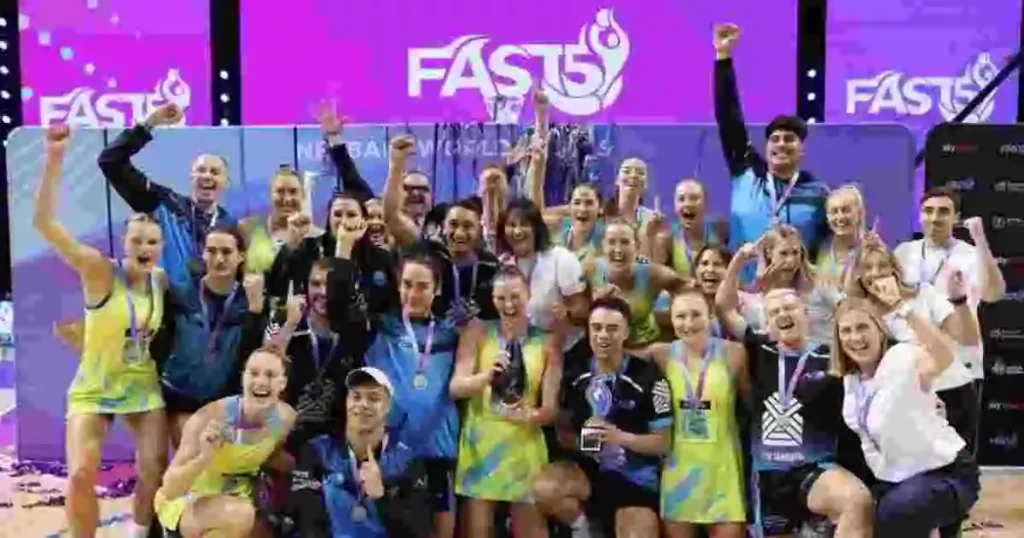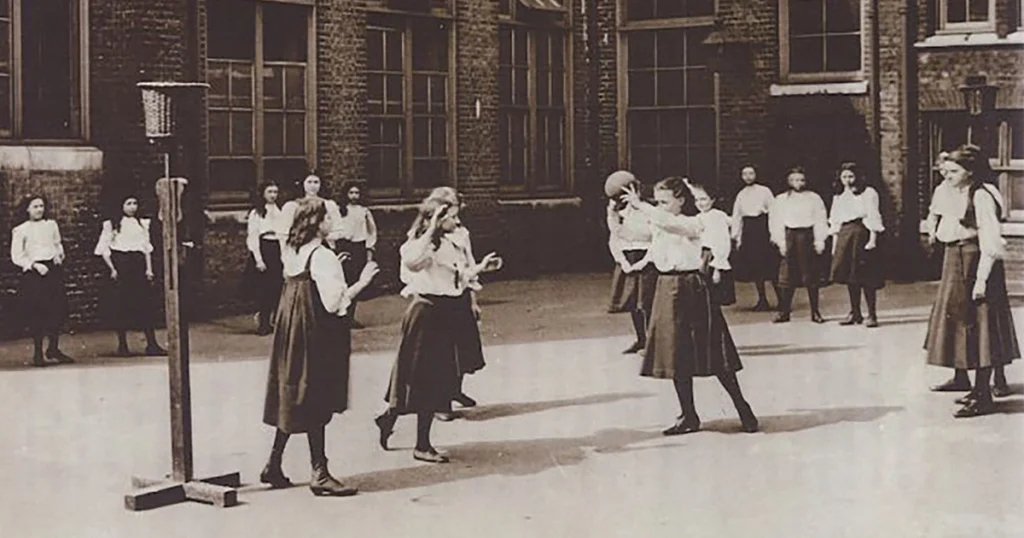The Premier League isn’t just about dazzling goals and last-minute drama—it’s a meticulously regulated competition where rules ensure fairness, safety, and relentless excitement. From VAR’s precision to financial safeguards preventing reckless spending, these guidelines are the league’s unsung heroes. Without them, the world’s most-watched football division would descend into chaos.
While fans cheer tackles and scream over offsides, few realize how deeply rules influence every moment. The “seven-player minimum” prevents farcical mismatches, while substitution windows balance fatigue with fluidity. This isn’t just bureaucracy; it’s what separates elite football from playground scrambles.
As the game evolves, so do its laws. The 2024/25 season introduces semi-automated offsides and stricter financial controls, proving the Premier League’s commitment to progress. Whether you’re a die-hard supporter or a fantasy manager, understanding these rules reveals the hidden chess match behind the spectacle.
- VAR’s scope: Reviews only goals, penalties, red cards, and mistaken identity.
- Financial Fair Play: Clubs must now limit wages to 85% of revenue.
- Seven-player rule: Matches abandoned if a team falls below this threshold.
- Substitution windows: Five changes allowed, but only across three breaks.
- Points system: 3 for a win, 1 for a draw—goal difference breaks ties.
- New for 2024: Extended stoppage time for goal celebrations/VAR delays.
- Winter break: A 10-day pause in January to combat player burnout.
Rights, Rules, and Responsibilities
A Code of Conduct outlines the expected behavior for everyone involved in the Academy, including players, parents, and clubs, both during training sessions and official Premier League events. These codes are designed to create a safe, respectful, and enjoyable environment for all participants. By signing the Code of Conduct during registration, players and their families commit to following these important guidelines. This helps ensure that the Academy operates smoothly, protects the welfare of all involved, and fosters positive personal and athletic development.
The Codes of Conduct are tailored for different groups: Academy Players, parents and carers, Clubs, and spectators. Each group has specific responsibilities to uphold, from practicing discipline and respect to supporting players constructively. These codes also emphasize the importance of communication, honesty, and adherence to the rules of the game, including maintaining a bullying- and discrimination-free environment. Following these rules helps build a positive atmosphere where players can thrive both on and off the pitch.
- Codes of Conduct promote safety, respect, and positive development.
- Different groups have tailored responsibilities to follow.
- Emphasis on communication, discipline, and anti-discrimination.
- Breaches may result in consequences or removal from events.
- Cooperation maintains the integrity and fairness of the Academy system.
In addition, the Premier League enforces clear procedures to handle breaches of the Code of Conduct, including consequences like discussions with involved parties or, in serious cases, removal from events. These measures underline the commitment to safeguarding all participants and maintaining the integrity of the Academy system. Everyone’s cooperation is crucial in promoting fairness, respect, and safety throughout the football journey.
Matchday Regulations: The Framework of Every Game
Premier League matches operate like precision clocks, with rules ensuring consistency across all 380 fixtures each season. The 90-minute split into two halves isn’t arbitrary—it’s a century-old standard refined with modern stoppage-time calculations. Since 2023, officials add extra minutes for goal celebrations and VAR checks, pushing actual playtime closer to 60 minutes.
The seven-player minimum rule is football’s emergency brake. While lower leagues sometimes continue with fewer players, the Premier League’s global stature demands integrity. This prevents scenarios like a 5-0 lead becoming an uncontested farce after multiple red cards. It’s a rarely invoked but critical safeguard.
| chelsea | Homegrown Players (min. 8) | Squad Size (max. 25) | Profit & Sustainability Status | UEFA Club Competition? |
| Manchester City | ✅ 9 | 25 | ✅ Within PSR limit | ✅ Champions League |
| Arsenal | ✅ 10 | 25 | ✅ Within PSR limit | ✅ Champions League |
| Manchester United | ✅ 8 | 24 | ⚠️ Watchlisted for spending | ❌ |
| Liverpool | ✅ 9 | 25 | ✅ Compliant | ✅ Europa League |
| Chelsea | ⚠️ 6 | 25 | ❌ Breached 3-year loss limit | ❌ |
| Tottenham | ✅ 10 | 24 | ✅ Safe zone | ✅ Conference League |
| Aston Villa | ✅ 8 | 25 | ⚠️ Under scrutiny | ✅ Champions League |
| Newcastle United | ✅ 9 | 25 | ✅ Within limits | ✅ Champions League |
| Brighton | ✅ 8 | 25 | ✅ Sustainable | ✅ Europa League |
| West Ham | ✅ 8 | 24 | ✅ Compliant | ✅ Conference League |
Substitution rules walk a tightrope between strategy and spectacle. Managers get five changes but must execute them across three windows (excluding halftime). This prevents excessive stoppages while allowing tactical shifts—like Arteta’s late-game wingers or Klopp’s midfield overhauls.
- Matches last 90 minutes plus added time for delays.
- Teams must start with 11 players; games abandoned if below seven.
- Five substitutions allowed across three windows (not counting halftime).
- Stoppage time now longer for VAR checks and celebrations.
- Concussion subs permitted beyond the five-player limit.
- No cooling breaks unless extreme heat (above 32°C).
- Ball must be Premier League-approved (Nike Flight 2024 model).
*”From the first whistle to stoppage-time drama, these rules turn 22 players into a ballet of controlled chaos.”*
Fair Play Enforcement: VAR, Cards, and Accountability
VAR has transformed from a controversial newcomer to an indispensable tool. Operating from Stockley Park’s hub, a team reviews four game-changing incidents: goals, penalties, red cards, and mistaken identity. The on-field referee retains final authority but often consults pitch-side monitors—a process taking 90 seconds on average in 2024.
Disciplinary rules punish misconduct while allowing physicality. Two yellow cards equal a red, but straight dismissals apply for violent conduct or denying clear goal chances (like shirt-pulling on a breakaway). New this season: immediate bans for surrounding referees, targeting captain-only protests.
Financial Fair Play (FFP) extends beyond the pitch. The 85% wage-to-revenue ratio replaces previous loss limits, forcing clubs like Chelsea to offload players. Meanwhile, transfer windows (summer + January) prevent mid-season arms races, though loan deals offer loopholes for savvy directors.
- VAR reviews goals, penalties, red cards, and mistaken identity.
- Straight red cards for violent conduct or last-man fouls.
- Five yellow cards before matchday 19 trigger one-game bans.
- FFP violations can mean point deductions (see Everton 2023).
- Transfer windows: 12 weeks in summer, 4 weeks in January.
- Homegrown quota: 8 of 25 squad players must be club-trained.
- Bans for multi-club ownership conflicts (e.g., Brighton/USG).
“Fair play isn’t idealism—it’s the Premier League’s ironclad code, enforced by technology and cold, hard sanctions.”
Behind the Scenes: Financial and Transfer Governance
While fans obsess over formations, the Premier League’s financial rules dictate which stars even take the pitch. The updated Profit and Sustainability Regulations (PSR) cap losses at £105m over three years, with 2024’s added wage restrictions. Manchester City’s 115 alleged breaches loom as a potential landmark case.
Transfer windows create structured chaos. Summer’s 12-week frenzy contrasts with January’s desperation deals. Loans allow temporary moves (like Lukaku’s Roma stint), but new rules limit “farm system” loans between sister clubs. Registration deadlines are absolute—no late paperwork like 2008’s Dimitar Berbatov fiasco.
Youth development rules shape long-term success. The homegrown player quota (8/25) rewards academies, while Brexit tightened work permits for non-UK signings. This balances global talent with local investment—why Arsenal scouts Ireland while Brentford mines Scandinavia.
- Clubs can lose max £105m over three seasons.
- Summer window: June 14–September 1 (2024 dates).
- Homegrown players: 8+ in 25-man squads.
- Post-Brexit, non-UK signings need Governing Body Endorsement.
- Loans limited to 4 per club from same team.
- Stadium revenue included in FFP calculations.
- New: 5% levy on transfers over £50m funds grassroots football.
“Financial rules don’t just balance books—they dictate which clubs dine at football’s top table.”
Rule Evolution: From Back-Pass Bans to Semi-Automated Offsides
The Premier League’s laws are living documents. The 1992 back-pass ban revolutionized goalkeeping, forcing sweepers like Ederson to emerge. 2016’s concussion protocols and 2021’s handball tweaks show responsiveness to player welfare and fan frustration.
Technology’s role grows yearly. Goal-line tech (2013) and VAR (2019) were just the start. 2024’s semi-automated offsides use AI to trim decision times to 25 seconds. Future debates? Likely automated foul detection and sin-bin trials.
The league’s 20 clubs vote on changes each February. Recent proposals include larger subs benches (from 9 to 11) and summer tournaments abroad. While tradition resists, the Premier League’s global brand demands innovation—even if it means 6:30 am kickoffs for Asian markets.
- 1992: Back-pass rule forces goalkeepers to develop foot skills.
- 2019: VAR introduced after World Cup trial.
- 2024: Semi-automated offsides reduce delays.
- Annual club votes determine rule changes.
- Future potential: Sin-bins for yellow-card offenses.
- Controversy persists over “soft” penalty calls.
- Next frontier: Real-time biometric monitoring for injuries.
“The Premier League’s rulebook never gathers dust—it’s rewritten each season to reflect football’s relentless evolution.”
Conclusion
Premier League rules are the invisible hands shaping everything from last-gasp winners to transfer sagas. They turn raw talent into structured brilliance, ensuring no team can buy success or flout fairness. For fans, mastering these guidelines reveals the sport’s hidden layers—where a millimetre offside or FFP spreadsheet decides titles.
As technology and finances grow more complex, so does the rulebook. Yet its core mission endures: to keep football unpredictable yet fair, global yet locally rooted. The next time you celebrate a goal, remember—it’s not just skill you’re applauding, but the system that lets brilliance shine.

